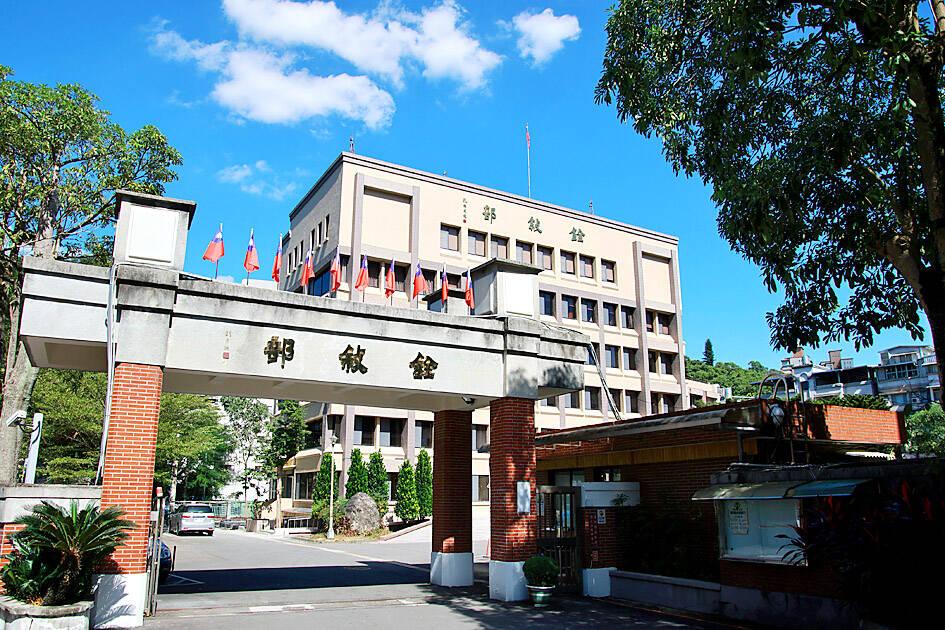New amendments for vetting civil servants are to take effect tomorrow, starting with the top members of the Executive Yuan.
The premier and vice premier, as well as the secretary-general and two deputy secretary-generals of the Executive Yuan are to be the first to undergo the new vetting procedure mandated by amendments to the Regulations on Special Vetting of Public Officials Involved in National Security or Major National Interests (涉及國家安全或重大利益公務人員特殊查核辦法).
The Examination Yuan approved the amendments in coordination with the Directorate-General of Personnel Administration as a response to a rise in cases of spying by China.

Photo courtesy of the Ministry of Civil Service
The new vetting process includes more in-depth and more frequent background checks on civil servants, as well as those who they live with, such as their spouses and parents.
The amendments were announced yesterday and the new procedure starts tomorrow, said Lee Hua-shu (李花書), a director in the Directorate-General of Personnel Administration.
Inspections would be carried out periodically for officials who serve in their roles for extended periods and special attention would be given in situations in which the five major national security laws are contravened, Lee said.
The staff of officials who are not covered by the new rules would be asked to sign an agreement to submit to vetting, Lee said.
The Executive Yuan’s top five officials and their staff would have priority vetting, Executive Yuan spokeswoman Michelle Lee (李慧芝) told a news conference.
The procedure and schedule are still being processed by the Investigation Bureau, Lee Hua-shu said.
The scope of the background checks has expanded beyond the traditional focus on foreign intelligence agencies or representatives from China, including Hong Kong and Macau, after recent cases have indicated that some domestic organizations are controlled or directed by outside forces, she said.
Checks would include individuals who have unauthorized contact with such political organizations, as well as those being enticed or threatened, she added.
The amendments authorize the Investigation Bureau to collect financial information, such as bank account records, tax forms, remittances, with the written consent of the person in question.
If the person does not consent, they would be appointed to a different position, the mew rules say.

The manufacture of the remaining 28 M1A2T Abrams tanks Taiwan purchased from the US has recently been completed, and they are expected to be delivered within the next one to two months, a source said yesterday. The Ministry of National Defense is arranging cargo ships to transport the tanks to Taiwan as soon as possible, said the source, who is familiar with the matter. The estimated arrival time ranges from late this month to early next month, the source said. The 28 Abrams tanks make up the third and final batch of a total of 108 tanks, valued at about NT$40.5 billion

Two Taiwanese prosecutors were questioned by Chinese security personnel at their hotel during a trip to China’s Henan Province this month, the Mainland Affairs Council (MAC) said yesterday. The officers had personal information on the prosecutors, including “when they were assigned to their posts, their work locations and job titles,” MAC Deputy Minister and spokesman Liang Wen-chieh (梁文傑) said. On top of asking about their agencies and positions, the officers also questioned the prosecutors about the Cross-Strait Joint Crime-Fighting and Judicial Mutual Assistance Agreement, a pact that serves as the framework for Taiwan-China cooperation on combating crime and providing judicial assistance, Liang

A group from the Taiwanese Designers in Australia association yesterday represented Taiwan at the Midsumma Pride March in Melbourne. The march, held in the St. Kilda suburb, is the city’s largest LGBTQIA+ parade and the flagship event of the annual Midsumma Festival. It attracted more than 45,000 spectators who supported the 400 groups and 10,000 marchers that participated this year, the association said. Taiwanese Designers said they organized a team to march for Taiwan this year, joining politicians, government agencies, professionals and community organizations in showing support for LGBTQIA+ people and diverse communities. As the first country in Asia to legalize same-sex

MOTIVES QUESTIONED The PLA considers Xi’s policies toward Taiwan to be driven by personal considerations rather than military assessment, the Epoch Times reports Chinese President Xi Jinping’s (習近平) latest purge of the Chinese People’s Liberation Army (PLA) leadership might have been prompted by the military’s opposition to plans of invading Taiwan, the Epoch Times said. The Chinese military opposes waging war against Taiwan by a large consensus, putting it at odds with Xi’s vision, the Falun Gong-affiliated daily said in a report on Thursday, citing anonymous sources with insight into the PLA’s inner workings. The opposition is not the opinion of a few generals, but a widely shared view among the PLA cadre, the Epoch Times cited them as saying. “Chinese forces know full well that